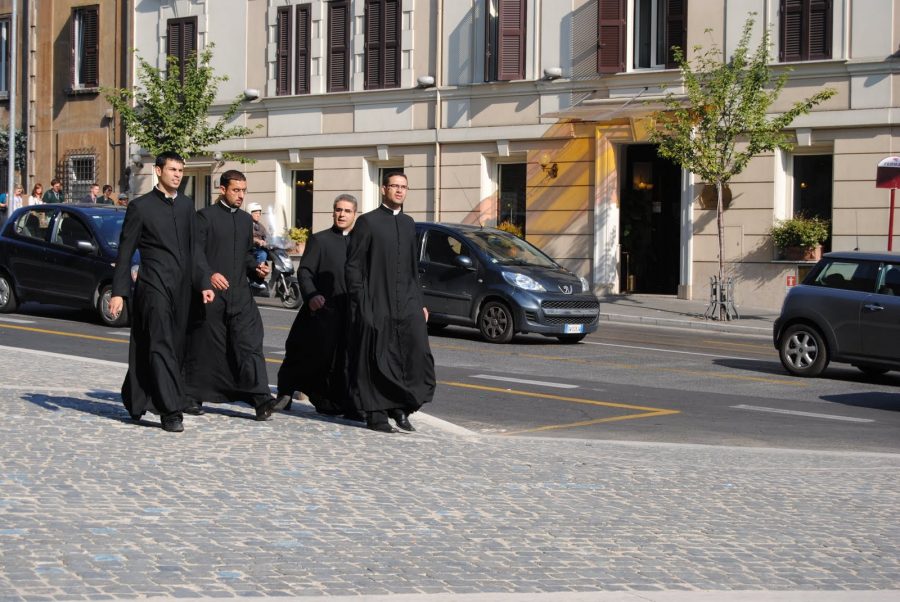Rev José Mario O Mandía
jmom.honlam.org
Is the priesthood for everyone?
Point 1577 of the CCC declares: “‘Only a baptized man (vir) validly receives sacred ordination’ (Code of Canon Law, can 24). The Lord Jesus chose men (viri) to form the college of the twelve apostles, and the apostles did the same when they chose collaborators to succeed them in their ministry (cf Mark 3:14-19; Luke 6:12-16; I Timothy 3:1-13; II Timothy 1:6; Titus 1:5-9; St Clement of Rome, Ad Cor. 42, 4; 44, 3: PG 1, 292-293; 300)…. The Church recognizes herself to be bound by this choice made by the Lord himself. For this reason the ordination of women is not possible (cf John Paul II, MD 26-27; Congregation for the Doctrine of the Faith, declaration, Inter insigniores: AAS 69 (1977) 98-116).”
The next point (1578) further explains: “No one has a right to receive the sacrament of Holy Orders. Indeed no one claims this office for himself; he is called to it by God (cf Hebrews 5:4). Anyone who thinks he recognizes the signs of God’s call to the ordained ministry must humbly submit his desire to the authority of the Church, who has the responsibility and right to call someone to receive orders. Like every grace this sacrament can be received only as an unmerited gift.”
The Church does not have the power to legislate the ordination of women because God – and not any human power – is the one who calls.
IS IT NECESSARY TO BE CELIBATE TO RECEIVE THE SACRAMENT OF HOLY ORDERS?
“It is always necessary to be celibate for the episcopacy. For the priesthood in the Latin Church, men who are practising Catholics and celibate are chosen, men who intend to continue to live a celibate life ‘for the kingdom of heaven’ (Matthew 19:12). In the Eastern Churches marriage is not permitted after one has been ordained. Married men can be ordained to the permanent diaconate” (CCCC 334).
OTHER REQUIREMENTS
The requirements can be found from Canons 1026 to 1032 of the Code of Canon Law.
(1) FREEDOM. No one can be forced to receive orders; no one can be deterred from receiving orders if he is canonically eligible (cf canon 1026).
(2) FORMATION (cf canons 1027-1028).
(3) CHARACTERISTICS OF CANDIDATES (canon 1029): [3.1] integral faith, [3.2] are moved by the right intention, [3.3] have the requisite knowledge, [3.4] possess a good reputation, and [3.5] are endowed with integral morals and proven virtues and the other physical and psychic qualities in keeping with the order to be received.
(4) AGE REQUIREMENTS (cf canon 1031. A dispensation from age requirements stated below of more than a year requires a dispensation from the Holy See.)
[4.1] For the Priesthood: 25 years old, sufficient maturity, and at least six (6) months after the diaconate is received, unless the Conference of Bishops requires an older age.
[4.2] For the Diaconate (for those destined to the priesthood): [a] after completing the 23rd year of age, [b] having finished the fifth year of the curriculum of philosophical and theological studies, and [c] after taking part in pastoral care, exercising the diaconal order, for a suitable time defined by the bishop or competent major superior
[4.3] For Permanent Diaconate. [a] Unmarried: 25 years old; [b] Married: 35 years old, with wife’s consent. Both [a] and [b] hold unless the Conference of Bishops requires an older age. [c] Must have completed the time of formation.


 Follow
Follow


